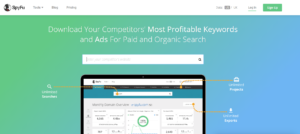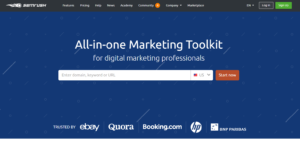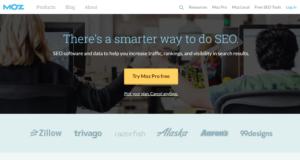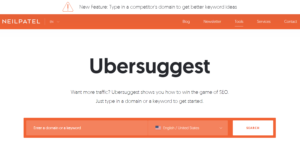What do SEO and SEM mean, and what are the difference between SEO tools and SEM tools?
In A Hurry?
- SEO stands for Search Engine Optimization
- SEM stands for Search Engine Marketing
- Most people align SEM with paid advertising, and SEO is organic traffic
What are SEO and SEM Tools?
SEO is commonly known as Search Engine Optimization.
SEM means Search Engine Marketing.
Both are essential concepts for any marketer to master and play a vital role in everyday online marketing endeavors.
Search Engine Optimization is when your website or webpage is “optimized” to show up in organic (non-paid) search engine page results.
SEO rules and algorithms change quickly and often without notice, so it is crucial to understand the health of your business in the search engines.
SEM is the paid marketing done to ensure your website shows up on search engine results pages (SERPs) to drive leads and sales.
SEO leads to organic traffic to your website, and SEM is the paid traffic to your site.
Most of the traffic on the web today is driven by search engines, so any business must invest time and resources into SEO and SEM tools. Hence, their company competes successfully in their respective niche.
How is SEO data different from SEM tools?
SEO data is related to your website and how it shows up in the SERP results.
SEO includes keywords that your website ranks for your website authority rating and the number of backlinks your site has generated.
SEM tools compile a lot of these stats but also give you an analysis of your competitors and related keywords that you may use in your PPC (pay-per-click) ad campaigns.
SEM also includes data that gives you CPC (Cost Per Click) and CPA (Cost Per Acquisition) costs so that you can optimize your paid marketing programs.
SEM is used for retargeting campaigns, geo-targeting, demographic targeting, and device targeting.
Using SEM tools is a complex process and is usually handled by advanced marketers who have marketing budgets for running paid ads.
Understanding the relationship between SEO and SEM tools will allow you to use these tools effectively.
How can using SEO and SEM tools help your business?
SEO and SEM tools help a business navigate their online presence successfully.
Search engines drive over half of the web traffic today.
Search engines also change their policies and algorithms frequently, and sometimes without much notice, so what is working for a business today can quickly fail to work tomorrow.
SEO and SEM tools, when used correctly, will help your business stay ahead of these changes and give you a pulse of how your business is growing in a crowded marketplace.
If you are using organic traffic, SEO tools will help guide you in your content marketing strategy.
If you are running paid advertising, SEM tools will help you spend money wisely based on market and competitor data.
How much do SEO and SEM tools cost?
SEO and SEM tools can range from free to hundreds of dollars a year.
While there are free SEO tools out there, any seasoned marketer knows that they will need to pay for an excellent SEO/SEM tool.
Here are some considerations to ask yourself before investing in a tool:
- Are you a webmaster for only one site?
- Are you an SEO agency with multiple clients?
- Do you need a keyword tracker that does a competitive analysis?
- Do you already have a keyword strategy and need to analyze backlinks?
- Are you running paid advertising?
There are different goals for different companies, and some SEO/SEM tools try to combine most if not all, of these abilities.
To simplify your quest for the perfect SEO/SEM tool, we have broken them down into three main categories:
- All-In-One tools
- Keyword Tracker tools
- Backlink Tracking tools
SEO/SEM Tool Examples

SpyFU is considered a keyword tracker tool for running PPC (pay-per-click) campaigns. You can use it to research organic and paid keywords for your competition for the last 12 years. It tracks keywords for Google, Bing, and Yahoo.

AHREFS is considered a backlink tracker tool and offers one of the best competitive backlink trackers. You can also use it for content marketing as it can tell you the most popular content for any keyword or topic.

SEMRush is a tool that attempts to do everything and does so fairly well. It is rated by a lot of top marketers as the best all-in-one tool currently available. It has a broad feature set but also a high learning curve.

Moz is a keyword tracking tool with an extensive list of related features, including its site audit tool. It is known as an industry leader and has an informative blog section.

Ubersuggest is a free keyword research tool by Internet guru Neil Patel. It offers a great keyword suggestion tool and A/B significance testing calculator.
SEO and SEM Tools Conclusion
Understanding the difference between SEO and SEM tools is crucial to achieve success in your online marketing.
Each presents its challenges, but an excellent online marketer should effectively take advantage of both methods of tracking.
This will be key to success in the online marketing space over the next decade.